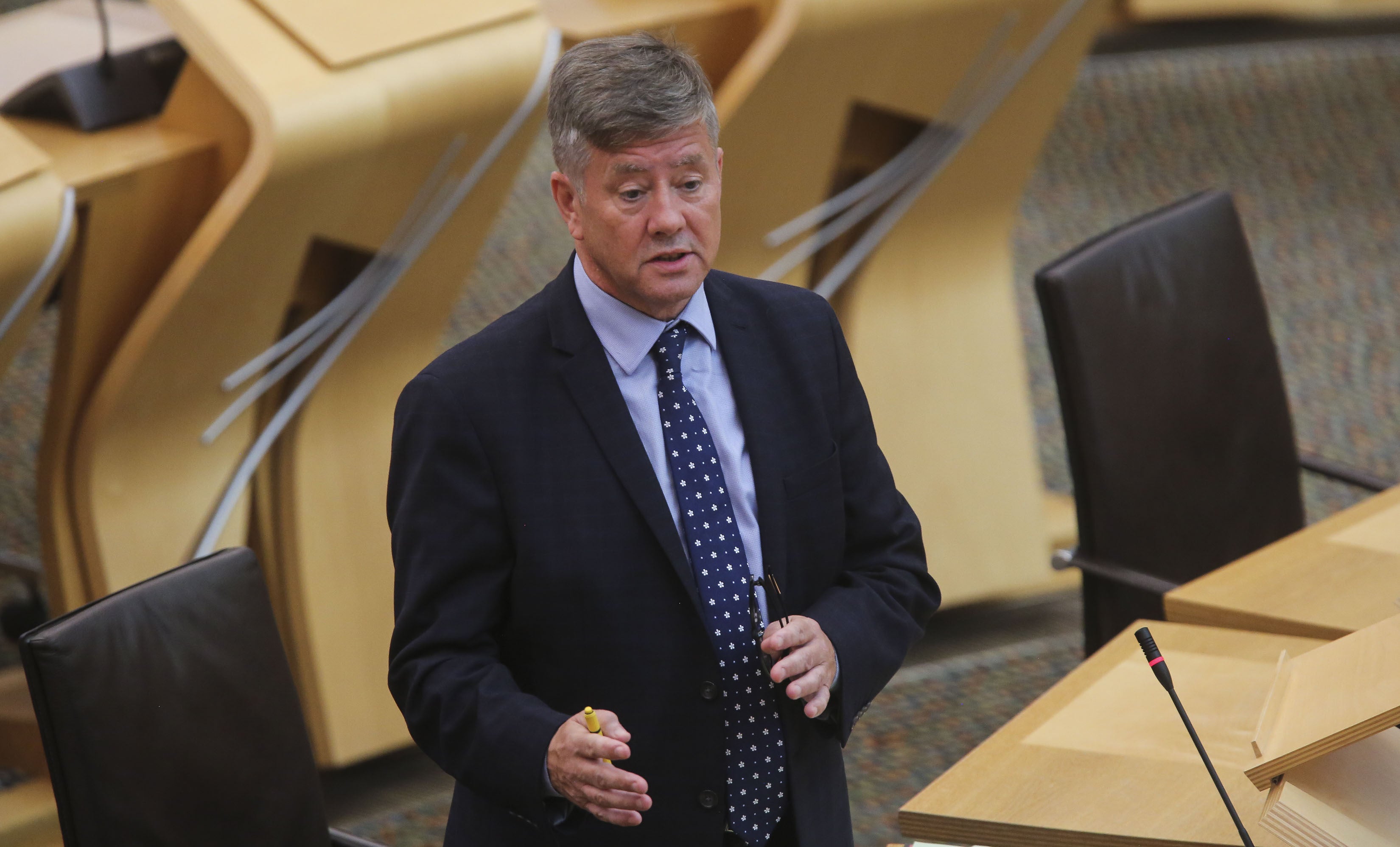Scottish minister recalls being ‘petrified’ during Falklands battle
Keith Brown joined the Royal Marines in 1980 and found himself at war two years later.

Your support helps us to tell the story
From reproductive rights to climate change to Big Tech, The Independent is on the ground when the story is developing. Whether it's investigating the financials of Elon Musk's pro-Trump PAC or producing our latest documentary, 'The A Word', which shines a light on the American women fighting for reproductive rights, we know how important it is to parse out the facts from the messaging.
At such a critical moment in US history, we need reporters on the ground. Your donation allows us to keep sending journalists to speak to both sides of the story.
The Independent is trusted by Americans across the entire political spectrum. And unlike many other quality news outlets, we choose not to lock Americans out of our reporting and analysis with paywalls. We believe quality journalism should be available to everyone, paid for by those who can afford it.
Your support makes all the difference.Scottish Justice Secretary Keith Brown has told how he was “petrified” during the Battle of Two Sisters in the Falklands War.
Mr Brown, who also serves as veterans minister in the Scottish Government, said he joined the Royal Marines in 1980 as a result of the employment situation at the time and as a way to get fit.
In 1982, he was shipped out to the Falkland Islands with 45 Commando.
The first hint Mr Brown had that something could be afoot was when his leave was cancelled.
“We’re due to go on leave for Easter and someone comes over the Tannoy and says ‘leave is cancelled and stay where you are in your digs and further information will come forward’,” he said.
“It came pretty much out of the blue to me and most people.”
But it was not until the boat carrying Mr Brown and his comrades left Ascension Island, where it had arrived from Portsmouth, that the threat of war with Argentina seemed to be a realistic prospect.
“I don’t think it was until we left Ascension Island that people felt there was a good chance this could actually happen,” he said.
The deployment to the Falklands came after the failure to relieve tensions by then US secretary of state Alexander Haig – who shuttled between the governments in London and Buenos Aires.
RFA Stromness, carrying Mr Brown and the rest of 45 Commando, landed on East Falkland under small arms fire, he said, but facing less resistance than previously expected.
“From memory, I thought there would be a lot more (small arms fire) than that,” he said.
“I think what quickly overtook that was we were led to believe we were going to have total air superiority, so we started to wonder why we were getting constant air raids.
“The air raids were much more of a thing than the small arms fire – it was a bit distant, you could hear it.”
When I was in the attack on Two Sisters, I was petrified
The troops of 45 Commando found themselves involved in the Battle of Two Sisters – one of three battles fought on the night of June 11 into the next morning.
The battles, which included engagements at Mount Longdon and Mount Harriet, resulted in the capture of the high points around Port Stanley, prompting the subsequent surrender of Argentine forces on the island.
“When I was in the attack on Two Sisters, I was petrified,” Mr Brown said.
“I did my job, but I was petrified.
“There were other guys that had seen it before that were as calm as you could imagine.”
When asked, some 40 years on from the war, if he felt the conflict was justified, Mr Brown was unequivocal – describing the regime of Leopoldo Galtieri as a “fascist dictatorship”.
He said: “The bottom line really comes down to how the people who live there want to live their lives.
“I think self-determination is quite an important principle.
“I do think it was important to protect that principle – they did not want to be ruled by Argentina, the way they were treated when the Argentinians came across showed it was not going to be a bright future for them as well, so I do think it was justified.”